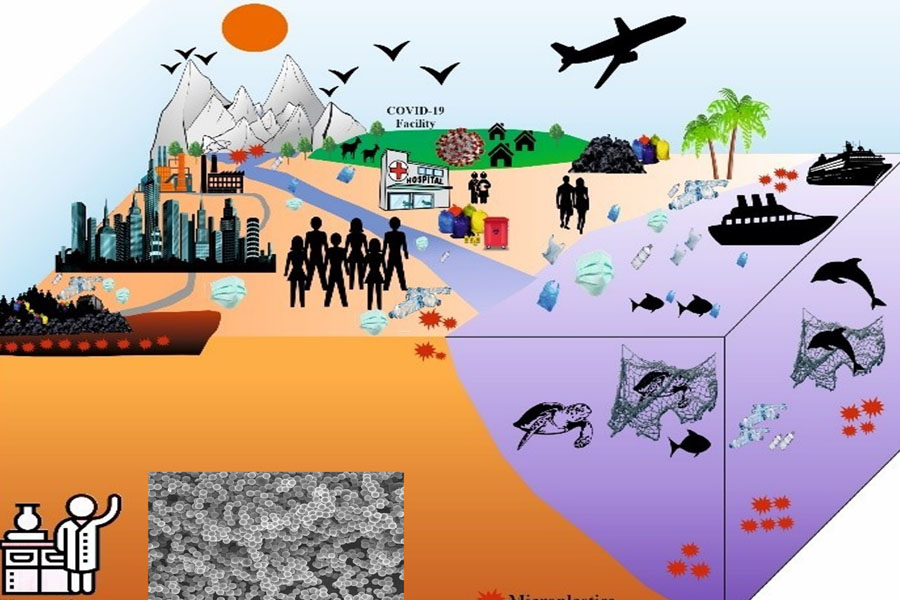ChE research develops synergistic sustainability theory to mitigate plastic pandemic
Since the beginning of the COVID-19 pandemic and the shift of global attention to human health, the amount of plastic waste being produced has increased tremendously. In order to combat this imminent plastic pandemic, a team of Purdue research scientists led by Professor Vilas Pol in the Davidson School of Chemical Engineering, undergraduate researcher Abhimanyu Raj Shekhar and collaborators came together to develop countermeasures against plastic waste production.

Single-use plastics in the form of face masks, testing kits and personal protective equipment have become increasingly abundant in the past two years. It is estimated that the world has generated more than 6.5 billion tons of plastic waste in total, with approximately 10 million tons produced during the pandemic. The world’s growing plastic footprint continues to generate environmental microplastics and greenhouse gas emissions, which in turn fuels climate change.
“An efficient plastic management strategy involves a perfect amalgamation of upcycling technology and governmental policies that will lead to a sustainable road for global and human health,” Shekhar said.
The team’s work, published in ACS Sustainable Chemistry & Engineering, produced the theory of synergistic sustainability, which combines global policy and technological development through application of the four Rs: removal, responsibility, reduction and revival.
To effectively combat the rising plastic waste, a global effort must be made to reduce the amount of new plastic being produced and to shift away from plastic recycling, which simply converts waste plastic material into other plastic forms.
“Our team thought about plastic upcycling processes where you can take valueless plastic and convert it into value-added products, such as carbonaceous materials that have applications in various fields,” Pol said.
Through continued research and development, innovative upcycling techniques that transform waste plastic into valuable materials, such as carbon nanotubes, carbon sheets, sulfonated carbon, carbon spheres and organic compounds would reduce the amount of plastic circulating within the plastic cycle. Plastic upcycling in combination with global policies that hold federal governments, corporations, and citizens responsible for reducing their carbon production and usage could greatly steer the world towards a more sustainable future.
“Decarbonizing the world has long been a devoted focus of key industrial players,” Shekhar said. “It is high time the scientific community across the globe join hands and deplasticize the world.”
